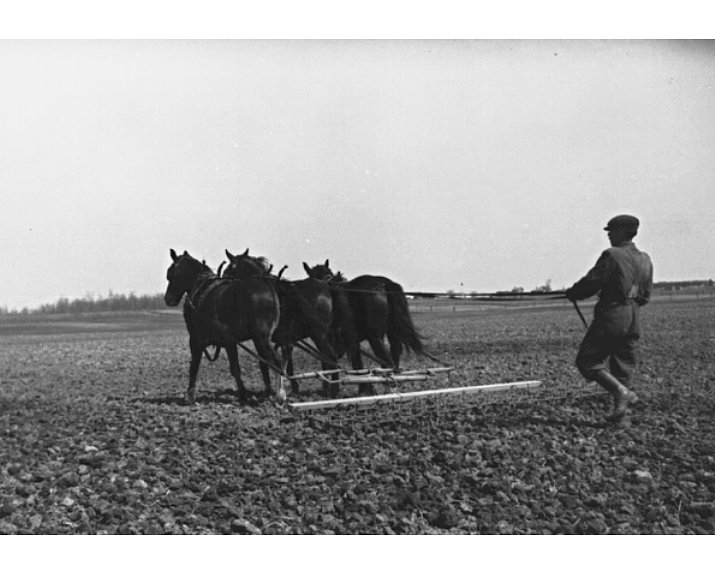The Relevance of Agricultural History to Present-Day Debates about Food Production
4 August 2013 - 11:20am
 This June, I attended the Agricultural History Society’s Annual Meeting for the first time in my academic career. It was a thought-provoking conference, as I was surrounded by fellow scholars of rural and agricultural history. In preparation for my (first!) blog post, I read posts by other THEN/HiER members, and found Neil Adolph’s 28 May 2013 blog “What's the Role of Presentism in History Education?” particularly interesting. Ultimately, I agree with Adolph that using history to contextualize present events is both useful and important, and that we need to teach our students to think in these larger contexts. Bringing this together with my reflections on the AHS Conference, and on agricultural history more generally, I argue that such an approach would be particularly beneficial for the contemporary debates about food production and agricultural innovation.
This June, I attended the Agricultural History Society’s Annual Meeting for the first time in my academic career. It was a thought-provoking conference, as I was surrounded by fellow scholars of rural and agricultural history. In preparation for my (first!) blog post, I read posts by other THEN/HiER members, and found Neil Adolph’s 28 May 2013 blog “What's the Role of Presentism in History Education?” particularly interesting. Ultimately, I agree with Adolph that using history to contextualize present events is both useful and important, and that we need to teach our students to think in these larger contexts. Bringing this together with my reflections on the AHS Conference, and on agricultural history more generally, I argue that such an approach would be particularly beneficial for the contemporary debates about food production and agricultural innovation.
Canadians are increasingly interested in where their food is coming from, as the popularity of local and/or organic produce and meats suggests. They are discussing how to best ensure the production of food that is safe, healthy, and locally available. Consider, for example, the debates over the use of seeds that have been genetically modified. In attempting to find solutions or resolutions to these concerns and debates, many people are looking to the past to see how food has been historically produced. Agricultural historians, then, have significant roles to play in educating the public in these debates. A number of papers at the AHS Conference, for example, addressed the implications of past production methods and the larger market and agribusiness pressures shaping, and arguably even dictating, earlier farm production. Such factors should be considered when discussing present-day agricultural concerns.
Agricultural historians arguably also have a key role to play in deconstructing the idyllic and nostalgic ideas of agrarian life and food production in our past. In the Upper Canadian context, Douglas McCalla’s work is central in challenging the entrenched myth of complete self-sufficiency in rural areas. My own dissertation also contributes to this field, as I examine how early to mid-twentieth Ontario farm families combined the self-provisioning and purchasing of “everyday” goods, such as food and textiles, to supply the goods needed and desired by their households. A study of agricultural and rural history, then, is a timely issue, as it will help to clarify debates about present-day food production, and will help to complicate mythical ideas of what a “return to the past” would actually entail.
How do you deal with agricultural history in your classroom/museum lessons?
References:
Neil Adolph, “What’s the Role of Presentism in History Education,” 28 May 2013, /drupal_blank/en/content/blog-contestwhats-role-presentism-history-education (accessed 13 July 2013).
Douglas McCalla, “A World Without Chocolate: Grocery Purchases at Some Upper Canadian Country Stores, 1801-1861,” Agricultural History 72, no. 3 (2005), 147-72.
Photo: Harrowing on Eaton Farm, Toronto Ontario, 1922. Library and Archives Canada, copyright expired.
- Se connecter ou créer un compte pour soumettre des commentaires

